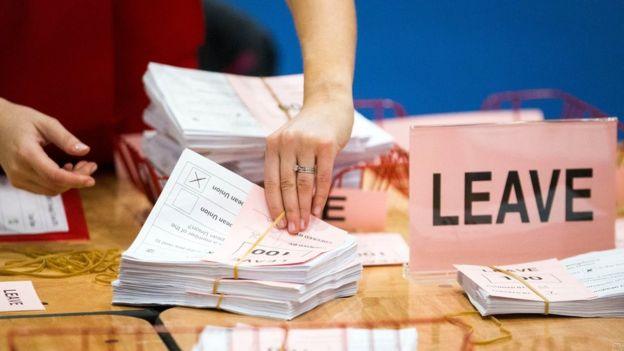EU referendum analysis: How will Leave vote affect Northern Ireland's economy?
- Published
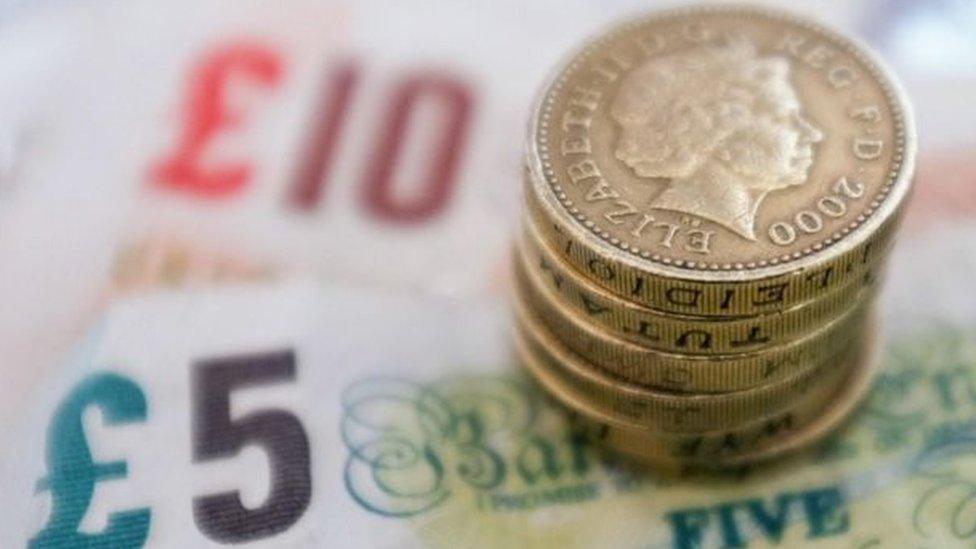
A significant period of uncertainty has begun as the UK begins to work out new trading relationships
At one level nothing has changed. But, in reality, everything has changed.
Northern Ireland and the UK are, for now, still in the EU and its single market. Companies still trade under the same system as they did on Thursday.
But that arrangement will now have to end, which could have far-reaching economic consequences.
A significant period of uncertainty has begun as the UK begins to work out new trading relationships with the EU and the rest of the world.
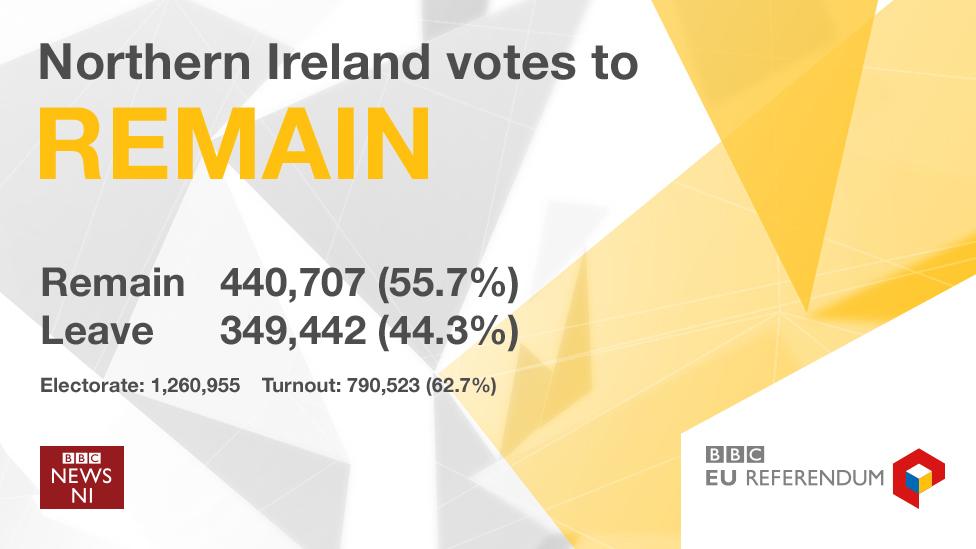
Many economists think that while that process is taking place there will be a slowdown in corporate investment.
In other words firms, particularly multinationals, could delay or cancel investment as they wait to see exactly what trade deals the UK ends up with.
There was already some evidence, in business surveys, of this effect occurring in the months before the vote.
That might have a particular impact on the Northern Ireland Executive's flagship economic policy, the reduction in corporation tax.
'Uncertainty'
That policy is due to take effect from 2018 and involves the executive accepting a cut in its block grant from Westminster as the price for having a lower tax rate than the rest of the UK.
The Leave vote has two consequences in regard to that policy.
Firstly, the cut in the block grant has to happen as a result of EU law so the executive might reasonably want to reopen negotiations with the Treasury on that point.
More fundamentally some economists, like Richard Ramsey of RBS, have questioned whether the policy now makes sense at this time.
They think that the uncertainty over trade relationships means the tax cut will struggle to achieve its main aim of attracting new foreign direct investment.
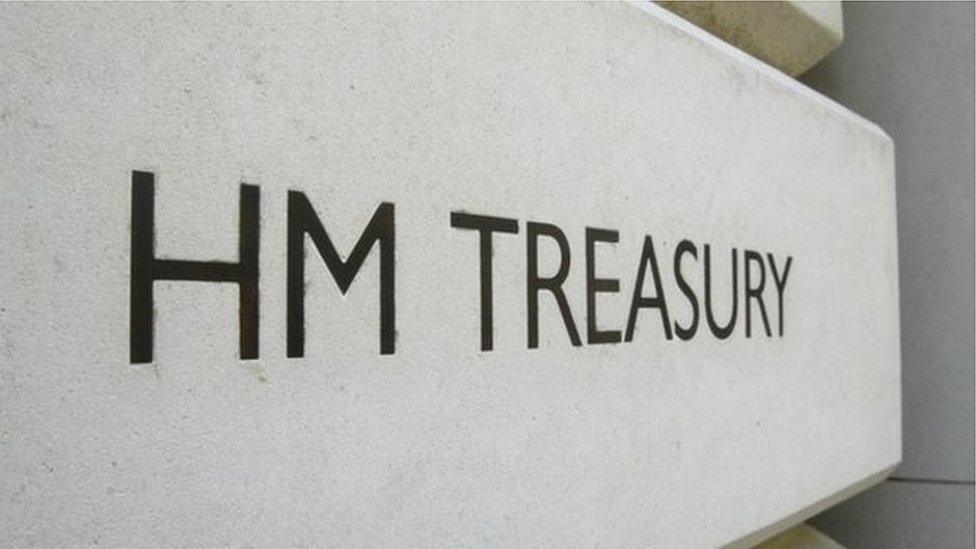
The executive may want to enter into negotiations with the Treasury over cuts to the block grant
The executive has other big issues to consider.
It is going to have to define what its priorities are in the UK trade negotiations and figure out how to defend those interests.
A pre-referendum report by MPs on the Northern Ireland Affairs Committee points out that agriculture and manufactured goods are more important to the Northern Ireland economy than in other parts of the UK.
How will those industries feature in negotiations likely to be dominated by the question of what happens to the UK's giant financial services industry?
Those issues will unfold in the coming months but the most immediate economic effect is the steep fall in the value of the pound against other currencies, as investors assess that the UK has become a riskier place to put their money.
For people planning to travel abroad in the near future that means their money won't go as far.
However, the movement of the pound against the euro is one to watch.
The EU is going to lose one of its three biggest members and that is likely to put the euro under pressure too.

A deep and sustained fall in the pound will affect cross-border trade
But, if the pound does fall steeply against the euro then border towns like Newry can expect to see a surge in southern shoppers.
A weaker pound will offer a boost to exporters of price-sensitive goods and services like food and tourism.
But, the bigger issue is what level the pound settles at after the initial turmoil.
A deep and sustained fall in the pound makes it more expensive to import goods from abroad.
Some imports can be substituted with UK-made products but higher-priced imports would push up inflation.
If inflation was to go beyond the 2% target it creates a dilemma for the Bank of England monetary policy committee, which sets interest rates.
Does it raise interest rates or 'look through' the currency effects and keep rates at rock bottom to offset that expected drop in corporate investment?
- Published24 June 2016
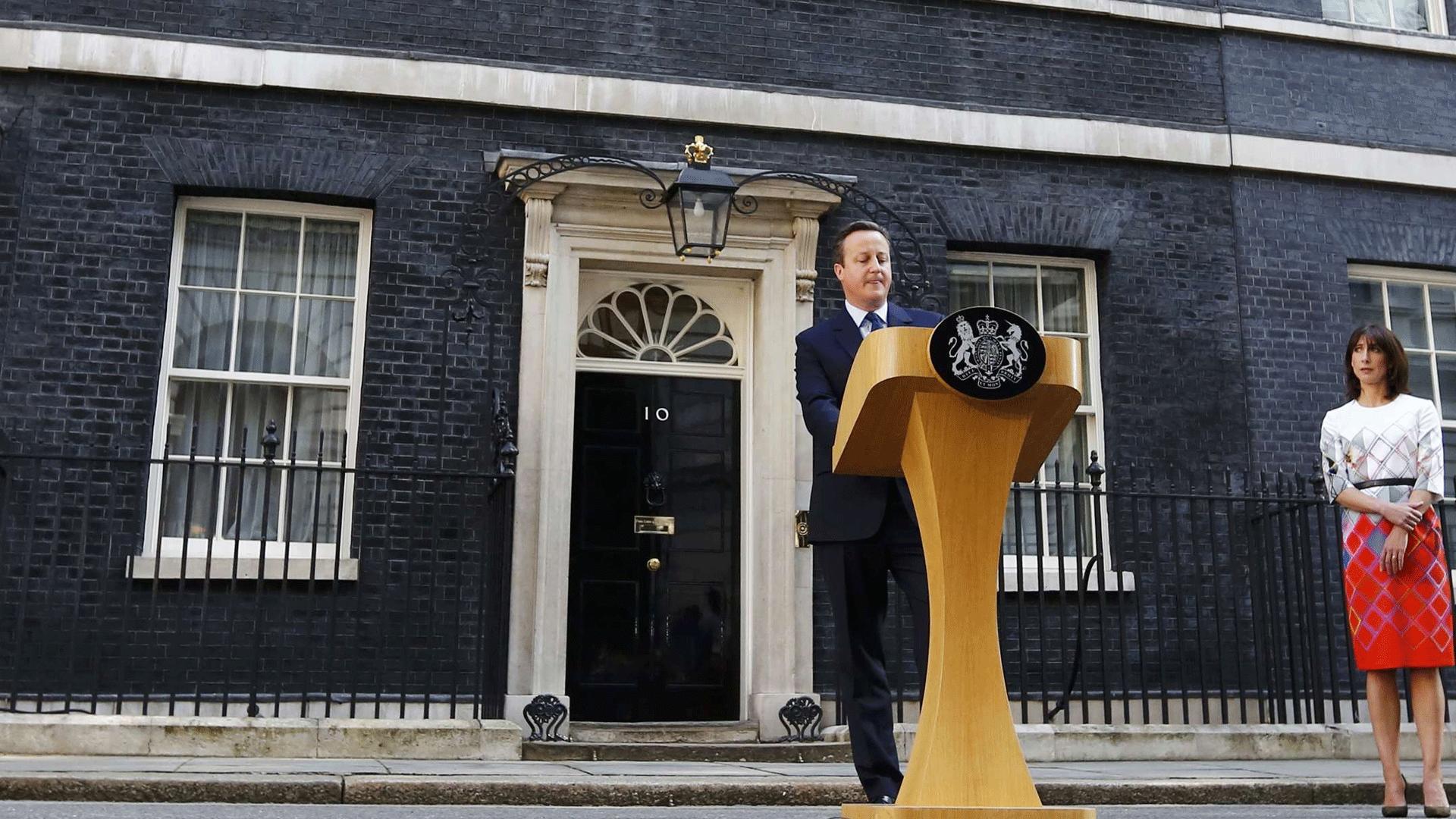
- Published24 June 2016
